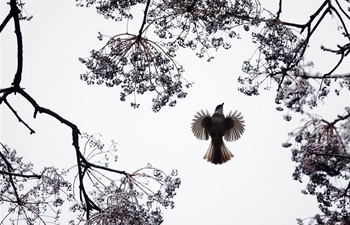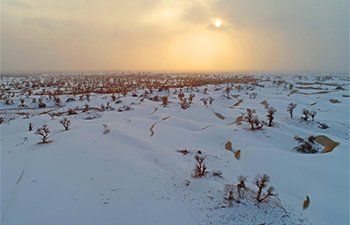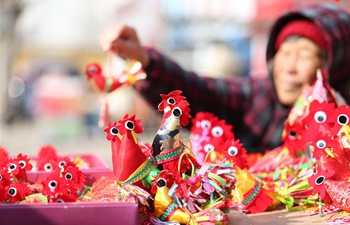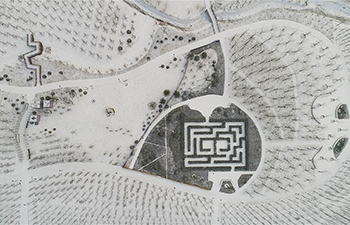MANILA, Jan. 30 (Xinhua) -- The International Rice Research Institute (IRRI) in the Philippines announced on Tuesday that the genome sequencing of seven wild rice varieties has finally been completed, claiming it will open opportunities for healthier and climate-smart rice.
"This breakthrough is expected to provide opportunities for breeders worldwide in developing better rice varieties that will respond to the changing needs of farmers and consumers," said the IRRI, an international agricultural research and training organization with headquarters in Los Banos, a town in Laguna province south of Manila.
This work is published by Nature Genetics, which is a scientific journal publishing high-quality researches in genetics, the IRRI said in a statement.
The study, which started in 2003, details the generation of seven wild and two cultivated genomes, the IRRI said.
Because the wild relatives of rice are adapted to different biogeographic ranges and can tolerate many biotic and abiotic stresses, the study says they constitute an important reservoir for crop improvement. "Strategies to harness such traits for the crop improvement show clear promise," it says.
Rod Wing, a professor in genetics at the University of Arizona, is one of the lead scientists in the study. He said: "Rice breeders urgently need to develop new and sustainable rice varieties with higher yield, healthier grains and reduced environmental footprints."
"The completed sequencing of the seven wild rice varieties is a significant progress to drive further genome evolution and domestication," said Wing.
Ruaraidh Hamilton, IRRI lead scientist for genetic diversity, added the breakthrough opens the door for rice breeders to harness genes from the wild relatives of rice, "allowing us to improve crops with traits that are preferred by farmers and consumers."
"It will also bring us steps closer to our goal of ensuring global food and nutrition security through sustainable rice production," Hamilton said.
The cultivation of rice, the staple food of more than half of the world's population, faces challenges including the threat of climate change and the onslaught of pests and diseases. The IRRI said the genetic traits that allow crops to overcome most, if not all, of these stresses can frequently be found in the wild relatives of rice.
"This research could significantly improve the rice breeding scenario, allowing shorter periods for genetic discovery and varietal improvements that would normally take years to develop," the IRRI said.
















